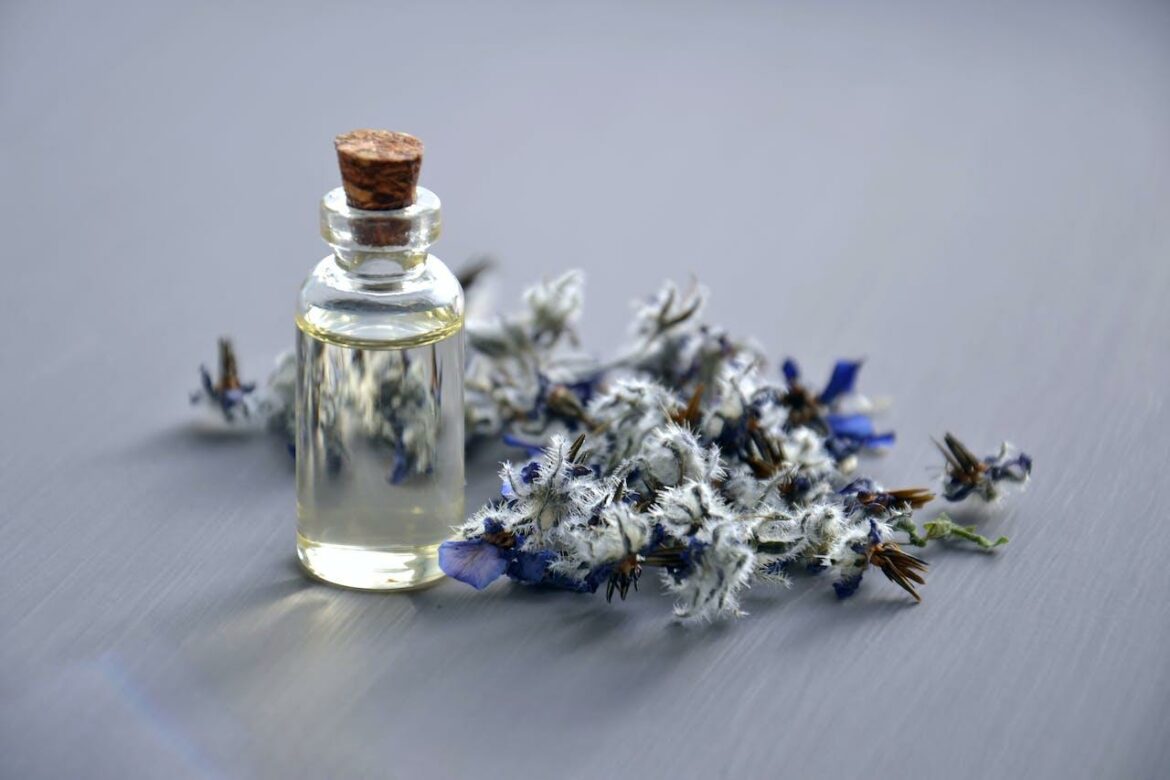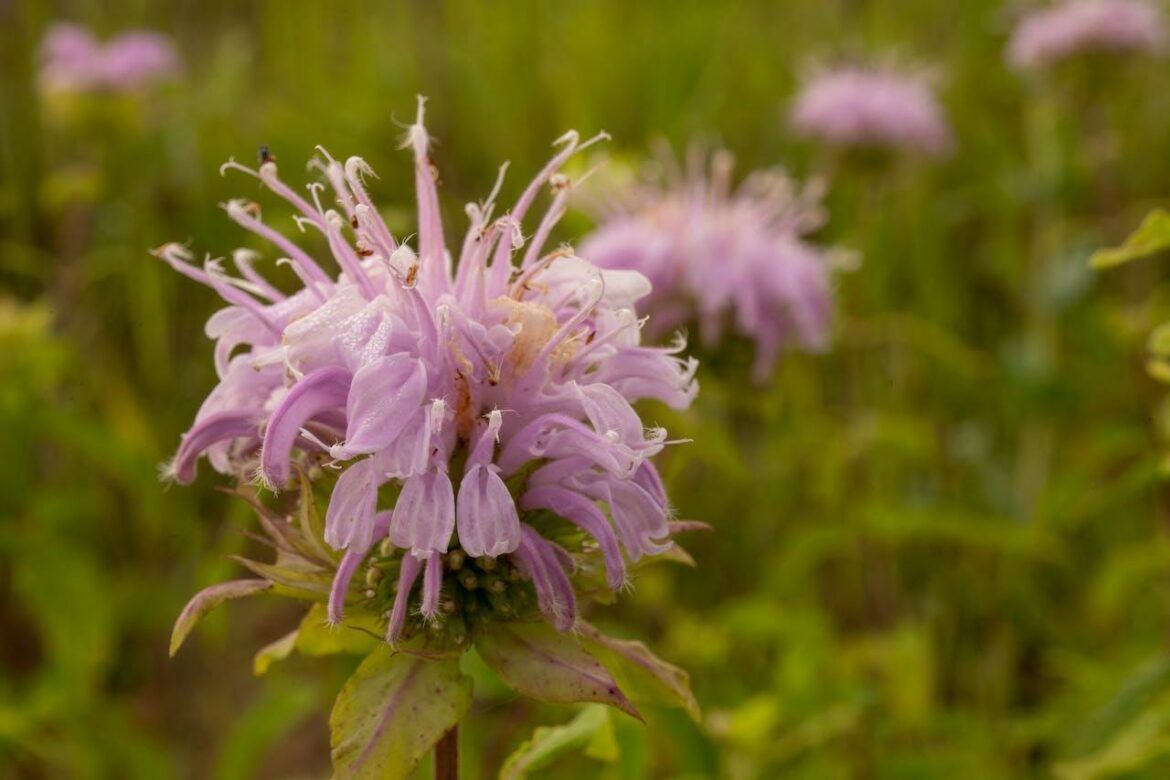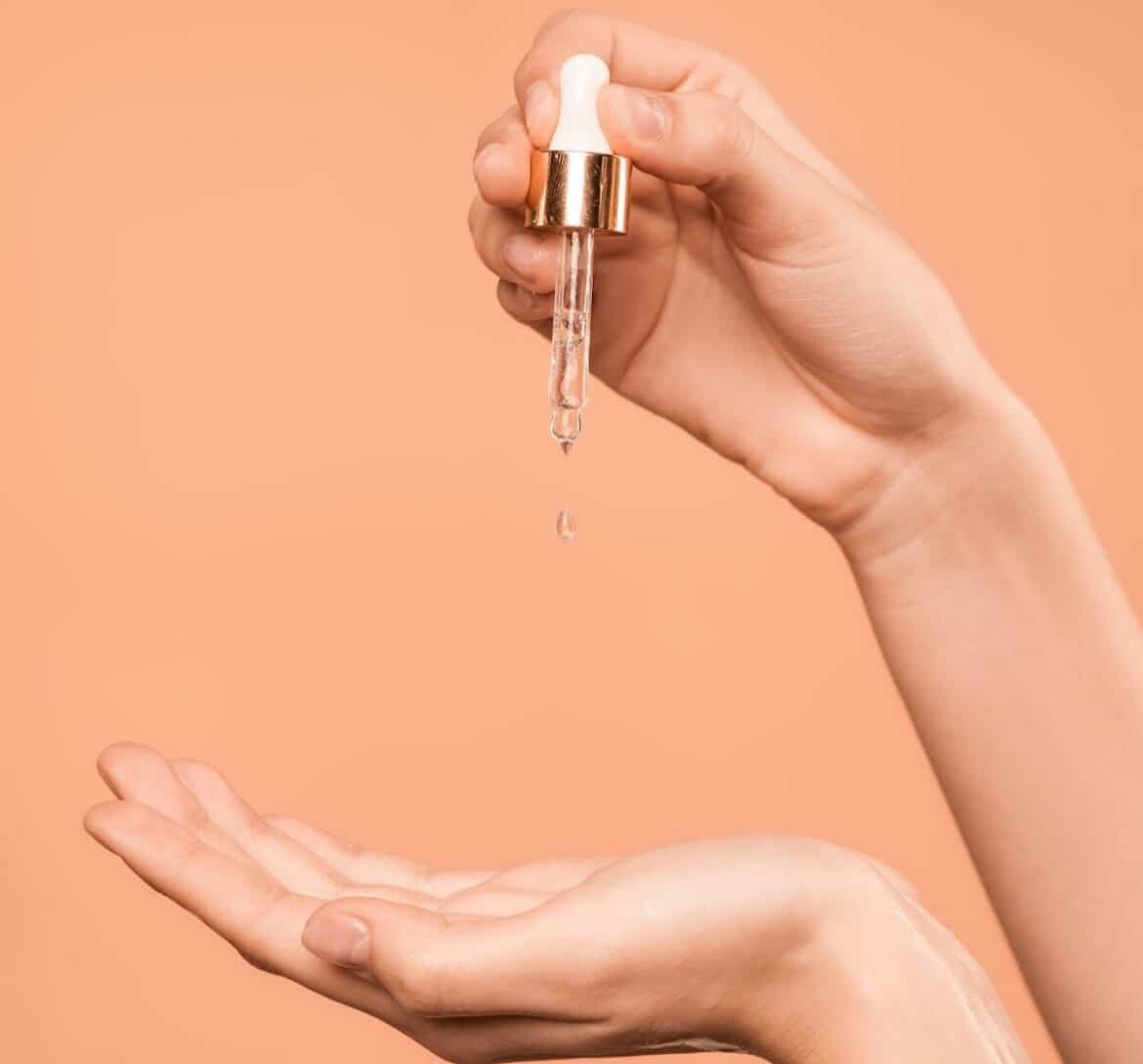Best Essential Oils for a Good Night’s Sleep
If you have ever found yourself tossing and turning, desperately counting sheep, or even considering a lullaby from Alexa, it might be time to explore the aromatic realm of essential oils.
Picture This: A cozy bedroom, dim lights, and a soothing scent wafting through the air, lulling you into a state of pure relaxation. That’s the magic of essential oils. We are not talking about some mystical potion here – just pure, natural extracts that have been used for centuries to give people a good night’s sleep and ease their minds.
But here’s the thing – essential oils are not a one-size-fits-all deal. Just like your favorite pair of PJs, finding the right one for you might take a bit of trial and error. Some folks swear by the calming effects of cedarwood, but studies say that lavender is the OG of relaxation, while others find their Zen with the sweet scent of ylang-ylang. It’s all about finding what floats your bedtime boat.
So, without further ado, let’s take a look at the top essential oils that promote sleep:
Lavender Essential Oil

Have you ever had one of those days when your mind is racing at the speed of light, and you just can’t seem to hit the brakes? Lavender is your co-pilot in slowing things down. Its aroma has been proven to reduce anxiety and stress, creating a serene atmosphere perfect for winding down after a hectic day.
How Lavender Works its Sleepy Magic
Derived from the lavender plant’s flowers through steam distillation, lavender essential oil isn’t just a pretty scent. It’s a powerhouse of compounds, with the star player being linalool, known for its calming and soothing effects.
According to a study published in The Journal of Alternative and Complementary Medicine, lavender essential oil improves sleep quality. Two groups were created to determine how lavender impacts sleep hygiene: Quality and quantity. The results revealed that while the group wearing a lavender necklace had a good night’s sleep, there was no difference in sleep quantity. However, the former group woke up feeling fresh.
By interacting with neurotransmitters in the brain, lavender helps calm the nervous system, paving the way for a smoother transition from a chaotic day to the shushing stillness of the night. It’s like giving your brain a cozy blanket and a warm cup of herbal tea but in an aromatic form.
Lavender’s Impact on Insomnia
Studies have shown that inhaling lavender essential oil before bedtime can improve sleep quality, making it a natural remedy for those battling insomnia.
The secret lies in lavender’s ability to influence the sleep-wake cycle, aka the circadian rhythm, promoting a more restful and rejuvenating slumber. So, if counting sheep isn’t doing the trick, maybe it’s time to count on lavender to guide you into dreamland.
Here’s how you can use lavender essential oil:
Lavender Pillow Spray
Ingredients
- Distilled Water
- Lavender Essential Oil
Directions
- Mix a few drops of lavender oil with water in a spray bottle.
- Spritz it on your pillow before bedtime to let your senses be awakened by its aroma, allowing the mind to shut down and sleep.
Lavender-Infused Sleep Balm
Ingredients
- Beeswax
- Coconut Oil
- Lavender Essential Oil
Directions
- Melt beeswax and coconut oil in a pan.
- Add lavender oil while the mixture is still hot, and pour it into small jars.
- Apply a dab to your pulse points before bedtime.
Relaxing Lavender Bath
Ingredients
- Epsom Salt
- Baking Soda
- Lavender Essential Oil
Directions
- Mix Epsom salt and baking soda with a few drops of lavender oil.
- Add to your bath for a luxurious and calming soak.
Bergamot Essential Oil

Bergamot is a citrusy wonder that hails from the Calabrian region in Italy, and its essential oil is extracted from the fruit’s rind. It contains several chemical compounds, including limonene and linalool, which have been linked to relaxation and stress reduction.
Bergamot doesn’t just make your room smell like a Mediterranean orchard. It also has the power to calm the chaos in your mind.
How Bergamot Stops Your Brain’s Cogs from Turning
Research suggests that bergamot essential oil may help lower cortisol levels. Cortisol is that pesky stress hormone that loves to party when it’s supposed to be bedtime. By taming cortisol, bergamot becomes your brain’s chill pill, signaling it’s time to wind down and catch those ZZZs.
The scent of bergamot triggers the release of feel-good neurotransmitters like serotonin and dopamine. These are the brain’s happy chemicals, and when they come out to play, stress and anxiety tend to take a back seat.
According to a study published in the Complementary Therapies in Medicine, bergamot relieves anxiety and promotes sleep. The 48 university students who participated in the study reported less sleepiness, feeling refreshed upon rising, and a good sleep length. The study concluded that using bergamot essential oil before bedtime allows you to relax your body and mind, providing sound sleep.
Regulation of Cortisol Levels
Cortisol, often called the “stress hormone,” plays a key role in the body’s natural wake-sleep cycle. Elevated cortisol levels, especially in the evening, can interfere with the ability to fall asleep. Some studies suggest that aromatherapy with bergamot oil may help regulate cortisol levels, promoting a more balanced and conducive environment for sleep.
Here’s how you can use bergamot essential oil:
Bergamot Sleep Spray
Ingredients
- Distilled Water: 2 oz.
- Witch Hazel: 1 tablespoon
- Bergamot Essential Oil: 10 to 15 drops
- Lavender Essential Oil (Optional): 5 drops
Directions
- In a small spray bottle, combine distilled water and witch hazel.
- Add 10 to 15 drops of bergamot essential oil to the mixture.
- If desired, add 5 drops of lavender essential oil for an extra calming effect.
- Shake the bottle well to ensure all ingredients are mixed thoroughly.
- Before bedtime, lightly mist your pillow and bedding with the sleep spray.
Bergamot Diffuser Blend
Ingredients
- Bergamot Essential Oil: 5 drops
- Cedarwood Essential Oil: 3 drops
- Roman Chamomile Essential Oil: 2 drops
Directions
- Fill your diffuser with water according to the manufacturer’s instructions.
- Mix bergamot, cedarwood, and Roman chamomile essential oils in a small glass bottle and add 5 drops to the water.
- Turn on the diffuser and let the calming aroma fill your room as you prepare for sleep.
Bergamot Sleep Tea
Ingredients
- Hot Water
- Bergamot Essential Oil: 1 drop
- Honey (Optional): 1 teaspoon
Directions
- Add one cup of water to a kettle and let it come to a boil
- Add bergamot essential oil and steep a tea bag in hot water
- Add honey if desired for sweetness.
- Sip the tea slowly about 30 minutes before bedtime.
Word of Caution: Do not add more than a drop of bergamot essential oil because it is quite strong and can cause dizziness, heartache, and muscle cramps.
Chamomile Essential Oil

Chamomile is a beautiful, daisy-like herb cherished for centuries for its calming properties. Chamomile essential oil contains compounds like bisabolol and chamazulene that tickle your olfactory receptors, relaxing your mind and body.
How Chamomile Relaxes You
Chamazulene is the compound responsible for the oil’s beautiful blue hue. It’s formed during the distillation process, giving chamomile oil that signature color. Its anti-inflammatory effects not only soothe irritated skin but also calm the body.
Chamomile’s aroma, with its magical mix of chamazulene and bisabolol, is directly linked to your brain’s relaxation station. Inhaling it signals your central nervous system to chill out, lowering stress levels and paving the way for the land of nod.
Chamomile also contains apigenin, which is an antioxidant defender. It has been found to bind to certain receptors in your brain that are associated with sleep regulation. Translation: It boosts the body’s melatonin (the sleep hormone) level, making you feel drowsy.
According to a study published in the Complementary Therapies in Medicine, chamomile essential oil taken orally improves sleep quality. The study included elderly participants, who were divided into two groups. The first group was given two chamomile extract capsules daily, while the second group was given placebos. Sleep quality was assessed two weeks before and after the study. The results revealed that sleep quality was better in the first group.
Here’s how you can use chamomile essential oil:
Chamomile Massage Oil
Ingredients
- Carrier Oil (Coconut or Jojoba Oil): ½ cup
- Chamomile Essential Oil: 10 drops
- Cedarwood Essential Oil: 5 drops
- Bergamot Essential Oil: 5 drops
Directions
- In a glass bottle, combine the carrier oil with chamomile, cedarwood, and bergamot essential oils.
- Close the bottle and shake well to blend the oils.
- Allow the mixture to sit for a day to let the oils infuse.
- Before bedtime, warm the oil by rubbing it between your palms and massage it onto your neck, shoulders, and feet for a calming effect.
Calming Dream Blend
Ingredients
- Clary Sage Essential Oil: 3 drops
- 3 Drops Chamomile Essential Oil: 4 drops
- Bergamot Essential Oil: 2 drops
- Ylang-Ylang Essential Oil: 1 drop
- Citrus Essential Oil: 1 drop
Directions
- Let chamomile oil be the base of this mixture. Add more drops of it than other essential oils.
- Mix all the essential oils.
- Choose sweet orange oil for the finishing touch. It will add a hint of brightness to the blend.
- Place the diffuser in your bedroom, add five drops of the blend, and let it disperse the calming aroma throughout your space 15 minutes before bedtime.
The Good, the Bad, and the Irritating

Essential oils have gained immense popularity for their supposed therapeutic benefits, from relaxation to headache relief. However, like anything in life, there’s always another side to the story.
Every essential oil comes with its own set of side effects. Here are some examples:
- The citrusy scent of lemon essential oil might remind you of a tropical paradise, but its acidic nature can cause an allergic reaction.
- Inhaling the soothing aroma of eucalyptus might feel like a spa day for your respiratory system, but for some folks, it’s a one-way ticket to cough city.
- Peppermint and eucalyptus, known for their headache-soothing properties, can sometimes trigger headaches or migraines. It’s like a catch-22 for your noggin!
- Clary sage has been linked to changes in estrogen levels.
- Lavender is toxic to dogs.
- Chamomile may have anticoagulant effects, so individuals taking blood-thinning medications like warfarin should exercise caution.
- Bergamot oil contains bergapten, which can make the skin more sensitive to sunlight, potentially leading to burns or pigmentation issues when exposed to the sun.
Always Do a Patch Test
Before we jump into the testing process, let’s pick the right essential oil. If you are new to this game, start with something mild and generally well-tolerated. Think lavender, chamomile, or tea tree oil. Save the hardcore stuff like cinnamon or oregano for later once your skin is accustomed to the gentler ones.
- Mix a small amount of your chosen essential oil with a carrier oil. A general rule is a 1-2% dilution, meaning 1-2 drops of essential oil per teaspoon of carrier oil.
- Using a cotton swab or pad, apply a small amount of your diluted essential oil to the chosen spot.
- If you notice redness, itching, or any signs of irritation after a while, it’s a sign that your skin isn’t vibing with that particular oil.
Final Word
Let’s take a casual stroll through the calming scents and soothing benefits we have explored. Catching those ZZZs can be elusive for many of us, but with the aromatic magic of essential oils, a restful night’s sleep might just be a few drops away.
We kicked off by delving into the relaxing world of lavender oil. This powerhouse not only adds a delightful fragrance to your bedtime routine but also has the science-backed chops to reduce anxiety and promote a serene environment.
Next up, we untangled the aromatic wonders of chamomile oil. Its gentle embrace allows you to sleep soundly. And let’s not forget the sweet dreams induced by bergamot. It seamlessly transitions from boosting your mood to ushering in calmness when bedtime beckons.
As we bid farewell to our aromatic journey, it’s clear that essential oils aren’t just pleasant fragrances; they are aromatic companions on your quest for a good night’s sleep. Whether you choose the floral dance of lavender, the calming embrace of chamomile, or the zestiness of bergamot – each oil brings its unique charm to the bedtime ritual.
To buy quality essential oils, visit the Maverick Oils website. For more information, call +1 (888) 516-8881.


